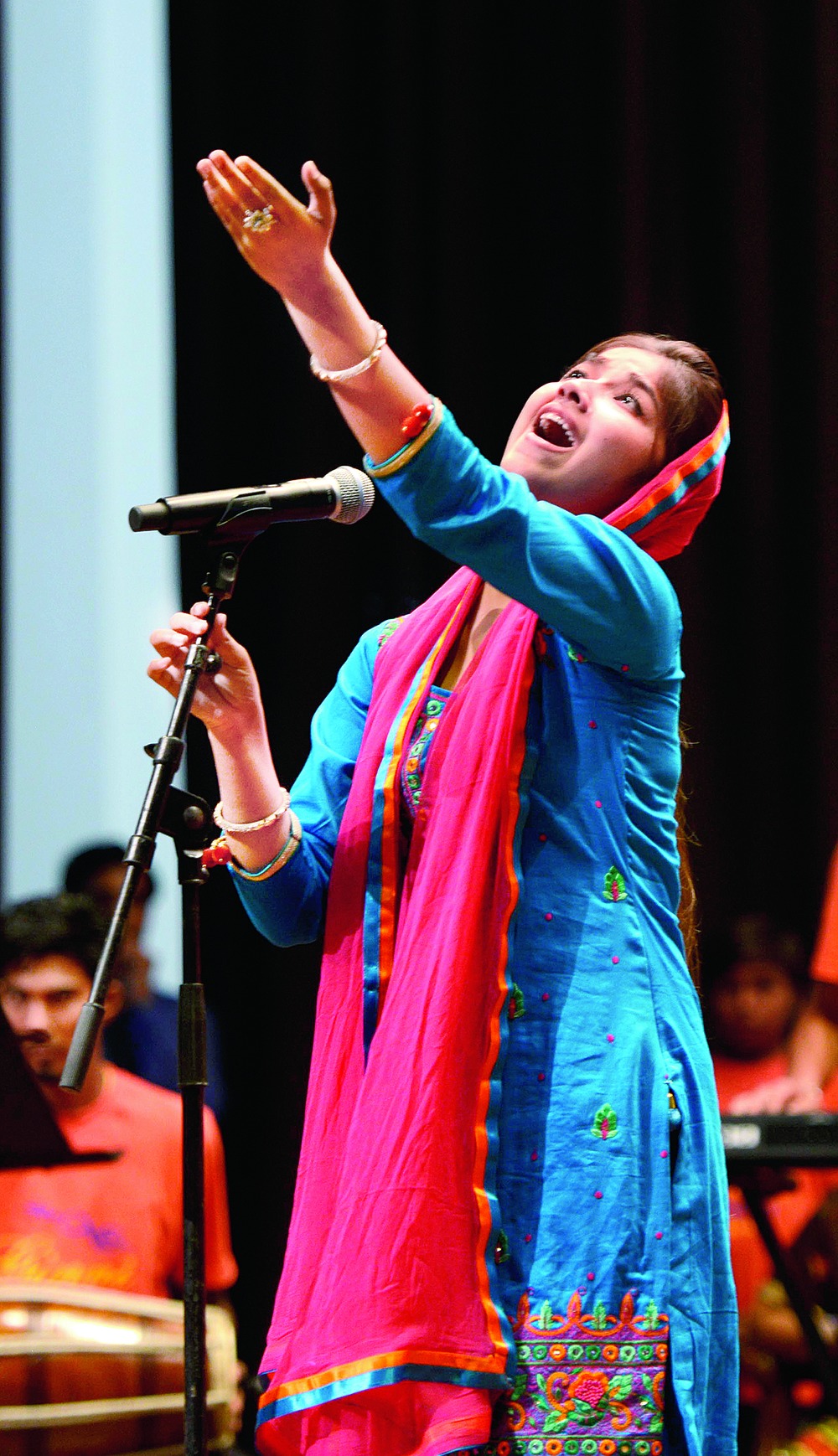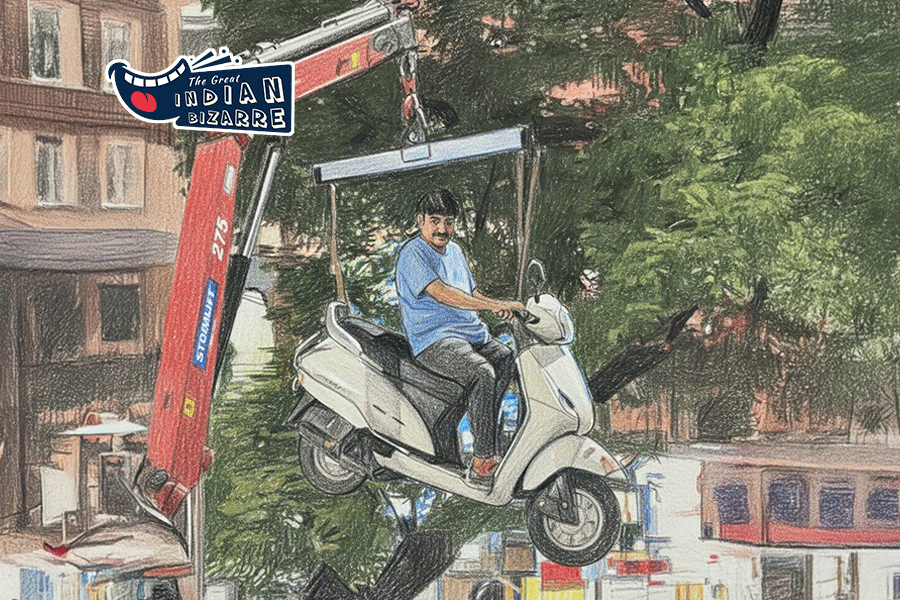
Ginni Mahi
Three artistes came together in the capital to raise their voice against the rash of attacks on Dalits and other backward classes in the country. Their show, on the eve of a march to Parliament against the atrocities, was titled "Article 14". This article in the Constitution lays down the right to equality before law - a code that links these artistes from different genres with each other and their audience.
"I can't keep quiet," says stand-up comedian Sanjay Rajoura - whose is known for his blunt and earthy political satire. "I've stopped trying to think about what change my satire will bring. It's an experiment which will be judged through its results." Rajoura, from Bulandshahr in Uttar Pradesh, quit the information technology industry in San Francisco to return to India and become a stand-up comedian.
"I had decided not to work anymore. I would go back to my village and do farming. I would occasionally come to Delhi to have a whisky with friends. One night they took me to a stand-up comedy show in Hauz Khas village. I saw it and said this is bakwaas and even I can do better than this," he told The Telegraph. Most stand-up comic acts, he explains, dwell on clichés - bad women drivers, lifestyle, consumerism and so on.
"If I am doing this I don't want to waste time. I talk about fascism, casteism, economic injustice and overdependence on modern gadgets. My politics on stage is obvious. When you use humour, the message stays in the mind of the listener," he explains. His attacks on casteism are in your face and directly linked to contemporary politics. "Only two Brahmins have been hung since Independence. The first one for killing Mahatma Gandhi. If you are Brahmin, you would have to kill a Mahatma to get a death sentence," he tells the audience at Mavalankar Auditorium in New Delhi.
"People loved Aisi Taisi Democracy [Rajoura's show]. That's the power of satire. You are getting hit but you don't realise it immediately. People ask us how we are still safe. What does safety even mean if you can get killed for eating beef," he added.
While Rajoura's comedy tries to shame people into changing their casteist ways, balladeer Shital Sathe draws her lyrics from the rage of the oppressed. Sathe, formerly with the revolutionary folk music group Kabir Kala Manch (KKM), was underground with her husband Sachin Mali from 2011 to 2013. Mali is still in Mumbai's Arthur Road prison. Both face charges of being members of the banned CPI(Maoist) - which they deny.
They are part of the shayari tradition of poets, patronised during Shivaji's rule and the revolutionary legacy of balladeers like Telangana's Gaddar, considered a Maoist syampathiser. Sathe says they left KKM as the organisation "is not as aggressive against caste as we are". She adds, "They are typical communists."
"India's casteist mindset is what makes human beings inhuman. I want to sing until my last breath to make people understand how casteism is destroying us. There have been saints and reformers like Tukaram who did what we are doing now. This music is key to the movement that wants to democratise this caste-based country," says Sathe.
She breaks into a song during an informal chat outside the auditorium, " Har gaon ke baahar hamari basti kyon hai, Dalit ki jaan itni sasti kyun hai?" (Why are our settlements kept outside villages, Why are Dalit lives so cheap?" Something in her voice draws people and disarms her listeners. By the time she finishes singing, tears well up in the eyes of a guard standing nearby.
Her three-year-old son Abhang, born soon after she surrendered, is part of her ensemble on stage. "He will learn by listening to us; he will slowly understand our songs. We won't have to teach him about the world," she said.
Sathe, who has MA and BEd degrees, says she can't find a job because the Sangh-backed ABVP won't let her teach anywhere. "No one gives jobs to people accused of being terrorists. We weren't speaking against India, we spoke to make India stand up. There is casteism in every party and to overcome it they simply need to imbibe the spirit of the Constitution and follow it. You can't change society without annihilating caste."
Punjabi pop singer Gurkanwal Bharti, known by her stage name Ginni Mahi, shot to fame after her song Danger Chamar was released last year. The 18-year-old from Jalandhar was the youngest participant of Thursday's event, but attracted almost constant applause. Mahi's songs - called Chamar Pop - are mainly about B.R. Ambedkar and Sant Ravidas with lyrics valourising Chamars in particular and Dalits in general.
"I will go to Bollywood and Hollywood and become a versatile playback singer. But first, I must sing for our community. All the great thinkers preached of equality. The audience demands songs like Danger Chamar as we Dalits want to say we are equal to others and respectable," said Mahi who started out as a professional singer when she was 12.
The title of the song came from a jibe by a schoolmate who said Chamars are dangerous. The lyrics say that Chamars are more dangerous than guns. Chamars in Punjab prefer to call themselves Ravidasia as the word Chamar is used as a slur. Mahi has done to Chamar what Gangsta Rap in the US did to the word "nigger" - turning it from a slur to a badge of honour.
"I started with religious songs. I still sing them. But I thought let's do something different. I wanted to sing about our people and our identity," she said. In between her songs, she put her hands up in the air asking the audience to clap with her. "Jai Bhim Jai Bharat!" - is a yell she raised between songs.
When asked about the violence in Una or Rohith Vemula's suicide, Mahi shrugs. "My songs only urge people to read about Babasaheb and the equality he ensured for us. Such crimes should not happen to anybody," Mahi said. " Soch samajhke vote dena," she tells the crowd between a song. "Elections paas aa rahein hain. (Vote carefully. The polls are near.) Your daughter is singing before you only because Babasaheb said men and women are equal."











